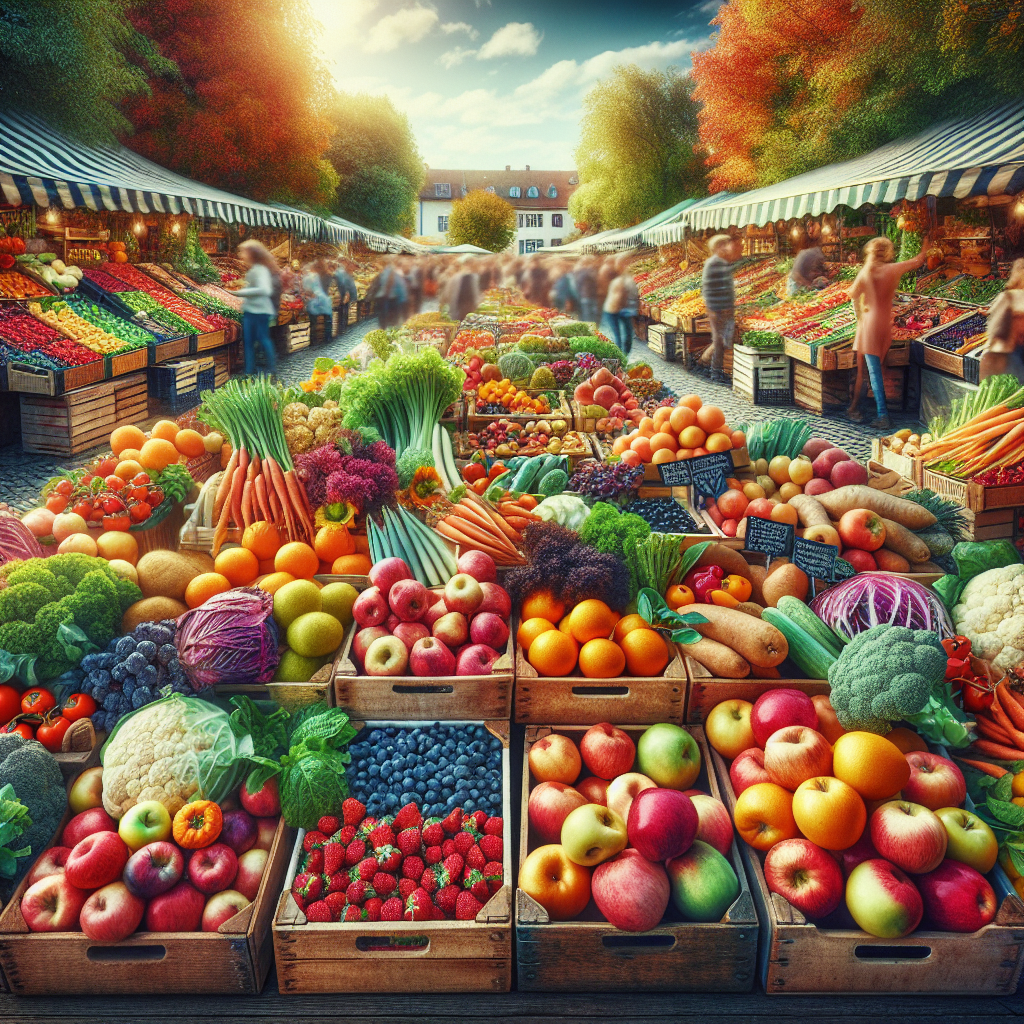The Origins of Organic Produce: A Farming Revolution
The Origins of Organic Produce: A Farming Revolution
Organic produce has emerged as a result of a farming revolution that has transformed the way we grow and consume food. The origins of organic produce can be traced back to the early 20th century when farmers began to question the use of synthetic chemicals and pesticides in agriculture. This led to the development of organic farming methods that focused on sustainable practices, soil health, and ecosystem preservation.
One of the key aspects of the farming revolution was the shift towards holistic farming practices that emphasized the importance of biodiversity, crop rotation, and natural pest control. These methods aimed to work in harmony with nature, rather than against it, to produce high-quality, nutrient-dense foods.
Furthermore, the organic farming revolution brought attention to the detrimental impact of conventional farming on the environment and human health. By eliminating the use of synthetic chemicals and GMOs, organic produce offers a safer and more environmentally friendly alternative for consumers.
As consumer demand for organic produce continues to rise, the farming revolution shows no sign of slowing down. With a growing emphasis on transparency and sustainability in the food industry, the journey of organic produce from farm to table has become a focal point for consumers, farmers, and policymakers alike.
Understanding the origins of organic produce is crucial in appreciating the efforts and values that underpin the farming revolution, and it highlights the importance of supporting sustainable and organic farming practices for the benefit of both people and the planet.
The Path to Your Plate: How Organic Produce Travels from Farm to Table
Understanding the journey of organic produce from farm to table provides valuable insight into the intricate process of delivering fresh, nutritious food to consumers. The path to your plate begins at the organic farm, where crops are carefully cultivated without the use of synthetic pesticides, herbicides, or genetically modified organisms (GMOs). This commitment to organic farming practices ensures that the fruits and vegetables are free from harmful chemicals, promoting environmental sustainability and preserving the integrity of the soil.
After being harvested, organic produce embarks on a journey that involves meticulous handling and transportation to ensure optimal freshness. From the farm, the produce is typically transported to distribution centers, where it undergoes quality checks to maintain its organic certification. Once cleared, the organic fruits and vegetables are shipped to various retailers, farmers’ markets, and restaurants, where consumers can access these wholesome options.
Upon reaching the consumer, organic produce completes its journey from farm to table, offering a range of health benefits and a delicious taste that reflects the careful cultivation and handling processes. By understanding the path that organic produce takes to reach consumers, individuals can develop a greater appreciation for the dedication and care that goes into delivering high-quality, organic fruits and vegetables from the farm to their plates.
Nurturing Nature: Understanding the Eco-Friendly Practices of Organic Farming
Organic farming is not just about the end product of fresh, nutritious produce; it also revolves around the eco-friendly practices and principles that shape the entire process, from farm to table. The journey of organic produce begins with nurturing nature through sustainable farming methods that prioritize soil health, biodiversity, and ecological balance.
One of the key aspects of organic farming is the exclusion of synthetic chemicals and pesticides, which can have detrimental effects on the environment. Instead, organic farmers rely on natural fertilizers, crop rotation, and biological pest control methods to maintain the health of the soil and the surrounding ecosystem.
Furthermore, organic farming often involves the use of cover crops and green manures to prevent soil erosion and improve soil fertility. By harnessing the power of natural processes, organic farmers promote a harmonious relationship between agriculture and the environment, leading to the production of high-quality, sustainable crops.
Moreover, the emphasis on reducing carbon footprint and minimizing resource wastage is inherent to organic farming. Practices such as water conservation, energy efficiency, and waste recycling contribute to the overall eco-friendly model of organic agriculture, making it a critical component in the journey from farm to table.
In essence, understanding the eco-friendly practices of organic farming is crucial in appreciating the holistic approach that organic farmers take to nurture nature and produce healthy, sustainable food for consumers.
